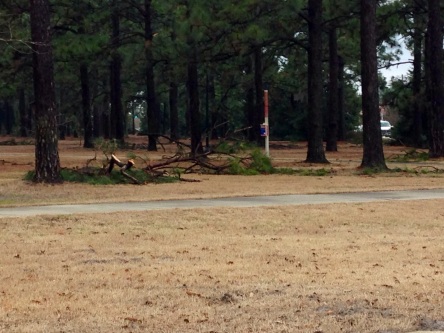Hard wood and tile floors lead to a locker room and the sauna of a pool. The floors shine and the water churns in rhythms that soothe. This is where the University of North Carolina Wilmington Swim Club meets. They gather at the end of the Olympic pool where there are benches to set down their swim gear. They laugh and talk amongst themselves, setting out practice equipment, until ready to jump in the pool. They stroke feverishly cupping the water and accelerate only to spin and bounce off the wall numerous times during practice. None of the swimmers are alike. They each wear their own bathing suit: from tie dye, camouflage, speedos, and even one with the word “ass” on the back. Their swim suits do not match but they are a team that comes to the pool every Tuesday and Thursday to train for their meets; they are each other’s coach.
They get in their lanes and jump. President of the swim club, Christopher Lazo, sets out the equipment in each lane and letting them warm up before practice. “Guys, let’s get that work in today.” That’s all he says. They look down at their workout sheets in plastic baggies, and go. Lazo, their student coach, since the university does not provide the club an official coach, motivates the swim team every practice.
Most of the students who come out for swim team have been swimming all their lives. They came to college and didn’t make the team, but loved swimming. Taking money out of their own pockets, they put up the $50 required to attend the 4 meets planned throughout the year, and participate with the team.
Several members of the UNCW swim club prepare to dive in and begin practice with some warm-up laps. The team practices every Tuesday and Thursday from 7:00-9:00 in the rec center’s lap pool.
They are still a young group compared to other club swim teams from schools on the east coast. This has never held the team back from pursuing their goals. The East Coast Collegiate Swim and Dive Club National Championship is held every year in Atlanta, Georgia. It is an opportunity for university swim clubs located near the east coast to get together and compete agasint 67 other teams (1400 athletes) from other schools. Last year the team did not make it, but this year was different story. At the most recent ECCU tournament last month, two of the teams’ members placed in three hundred person events. One of which is Hollis Villagos, 22 years old. Villagos made it to the finals of the fifty yard breaststroke and ended the tournament placing 20th. Villagos said, “The best part about the ECCU tournament was going with all of her teammates. Since being here and joining the swim club, the people on this team have turned into some on my closest companions”, she continued “It was a lot of fun to go and swim in an Olympic sized pool; it was crowded, and there were a lot of people.”
Christine Maccia, the secretary of the swim club also referred to her relationsionships with the team fondly. Maccia said, “Holly and I are best friends, the swim club is actually how we met; we have been best friends ever since.” Maccia keeps the financial records together since the club does not have help from the university or from an appointed coach.
The team is small and unlike bigger teams, where due to size most never get the chance to talk, everyone knows everyone. Once practice is done it becomes a usual thing for the team to go out and have dinner together. Their friendship is not limited to the pool, but those bonds transfer to being unity in the pool, helping cheer for one another, and being there for teammates whether they win or lose.
The president elected for the swim team for next year is swimmer Austin Laymen, 21. Eager and open to talk about his experiences on the club swim team, Laymen was more than willing to participate and share his connections with other swimmers on the UNCW swim club team. He is adamant on building team chemistry going forward into next season. Laymen said, “I plan on implementing a series of activities to do at the start of practice,” he continued “to try and close the divide between the swimmers that do 2,000 yard races and 3-4,000 yard races.” Laymen, said, “Although the chemistry of the club is great, there seems to be a divide among the yardage”, he continued “I think I was elected because I am mutually exclusive to both sides.” Although Laymen praised the current president Lazo, he thinks that if he is able to lessen the divide between swimmers of different endurance when he becomes president next semester, the team will succeed cohesively. When attending the ECCU National Tournament, Laymen said, “The drive is eight hours long, but it really helps the teammates get know each other on a personal and friendly level “,he continued “We really do care about each other.”






